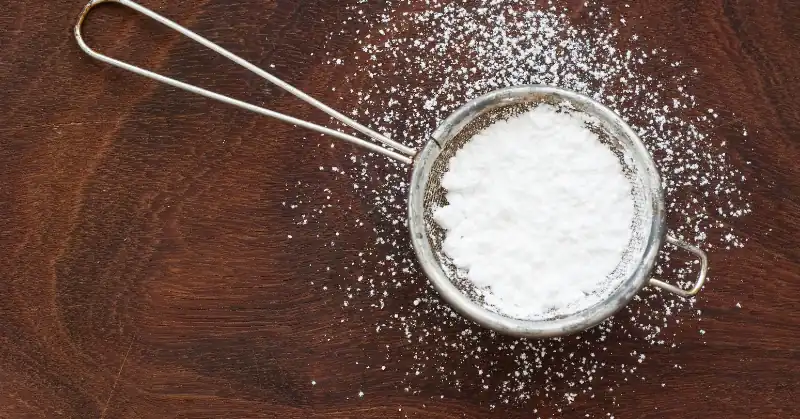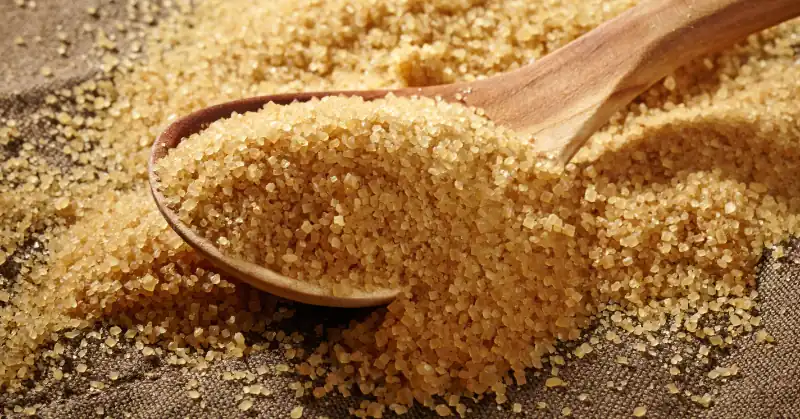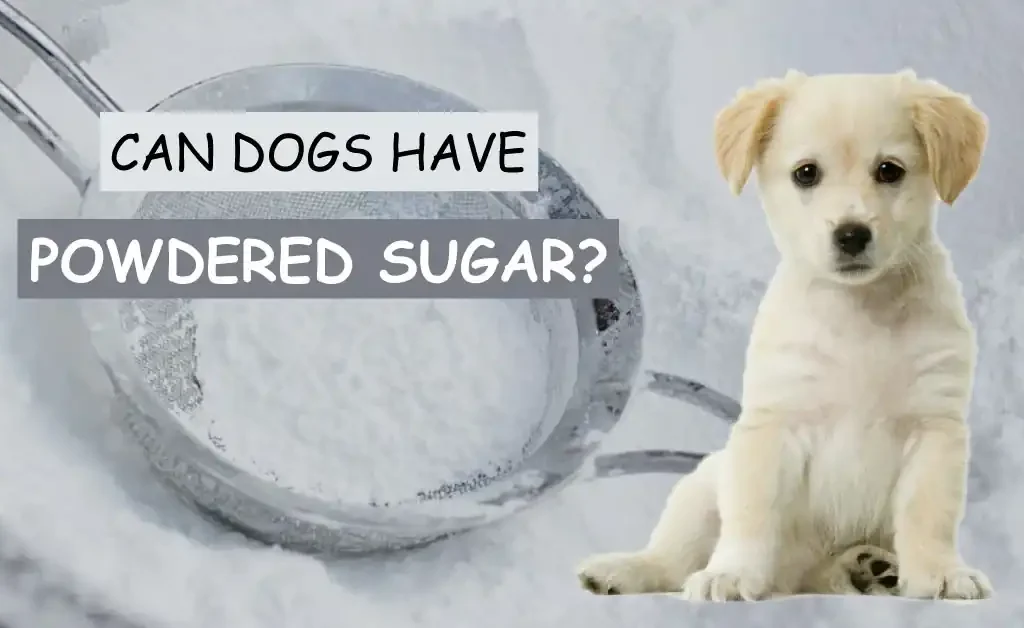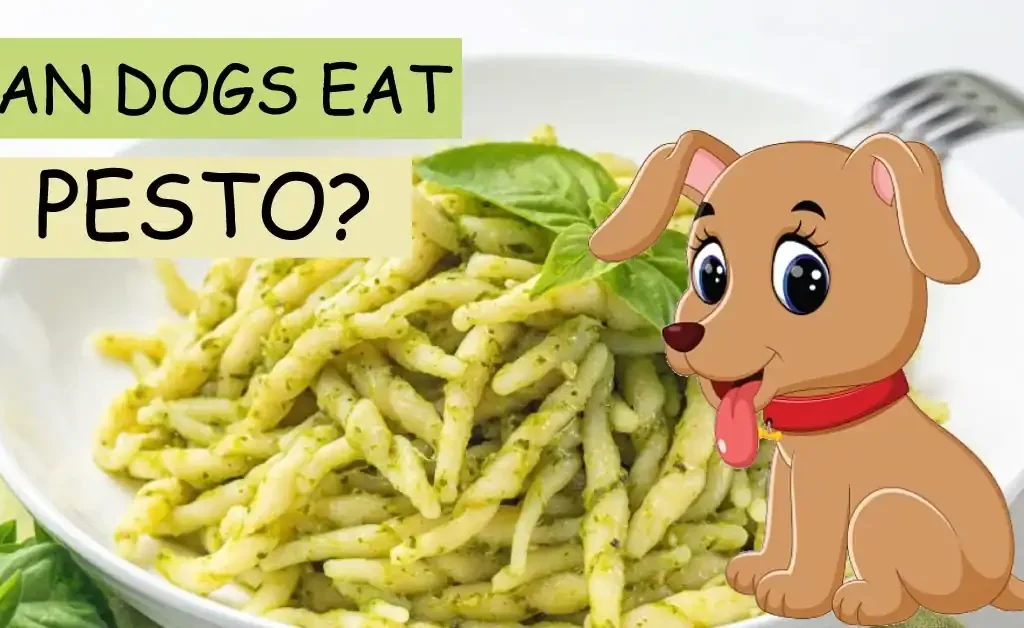Few ingredients in the lovely realm of culinary confections are as alluring as powdered sugar. From tiny pastries to towering cakes, simple treats have been transformed into exciting treats by their white look and velvety texture. However, can dogs have powdered sugar?
As committed pet parents, we often stumble through the maze of pet nutrition, trying to find the ideal ratio between indulgence and health for our canine companions. Join us on this delicious adventure as we review the information, bust myths, and assess whether powdered sugar has any place in your dog’s diet.
Is Powdered Sugar Safe for Dogs?
Dogs should not be given powdered sugar, sometimes called confectioners or icing sugar. Powdered sugar is just regular sugar that has been powdered and pounded finely. Corn flour is periodically added to keep it from clumping.
Powdered sugar is unsuitable for dogs because it contains a lot of sugar. In addition to the sugar content, powdered sugar frequently contains additives like Corn-flour, which is neither an essential nor a helpful part of a dog’s diet and can cause various health problems in canines.
Can dogs have powdered sugar donuts? While sharing sweet snacks with your dog may be alluring, selecting nutritionally balanced treats is essential. Consult your veterinarian for advice on handling the issue and protecting your dog’s well-being if you believe your dog has consumed powdered sugar or any other potentially toxic material.

You may also like to read, Can dogs eat cream of wheat?
6 Health Risks/Side Effects Associated with Powdered Sugar in Dogs
Due to the numerous serious health risks linked with powdered sugar ingestion, veterinarians strongly advise against providing it to dogs. These health risks are brought on by powdered sugar’s high sugar content and frequent addition of further ingredients. Veterinarians forbid feeding dogs powdered sugar for the following reasons:
1. Diabetes
The main component of powdered sugar is sucrose, a simple sugar. Dogs don’t have the enzymes needed for effective sugar metabolism, which has profound health implications.
Dogs on high-sugar diets are more likely to develop diabetes, especially from breeds genetically prone to the disease. Diabetes requires lifetime treatment and, if poorly managed, can result in consequences, including blindness and renal damage.
2. Obesity
The calories in sweet foods like powdered sugar are high. Regular intake can cause dogs to gain weight and become obese, which can cause joint problems, heart disease, and a shorter lifespan.
3. Dental Issues
Dogs’ dental problems are triggered by sugar. When consumed, sugar encourages the growth of dangerous oral germs, resulting in some dental complications:
Cavities are caused by bacteria’s carbohydrate breakdown, which results in acids that erode tooth enamel. Sugars encourage the development of germs that lead to periodontal disease and gingivitis. Persistent halitosis may occur from oral bacterial overgrowth.
4. Stomach Upset
The quick inflow of sugars in powdered sugar is difficult for dogs’ digestive systems to handle. It may cause various stomach issues, including abdominal pain or nausea, two gastrointestinal discomfort symptoms resulting from eating foods high in sugar.
Excess sugar or candies intake might upset the equilibrium of the intestinal flora, potentially leading to diarrhea. Diets high in sugar can also cause excessive gas production, which can cause flatulence.
5. Fluctuations in Energy
Sugar is a form of carbohydrate that is a good energy source, but dogs’ energy levels significantly fluctuate in response to high sugar. Dogs may experience hyperactivity after eating sugary treats, which may alter their behavior and cause restlessness. Lethargy brought on by the ensuing energy collapses might make dogs irritable or agitated.
6. Toxicities
Corn flour is a common ingredient in powdered sugar, which prevents clumping but has little nutritional benefit. These substances are unnecessary in a dog’s diet and may upset the stomach or trigger allergic responses and toxicities.

Several dog food brands use artificial sugar, xylitol, to achieve their sweet taste. Xylitol, also found in chocolates and raisins, is highly toxic to dogs and can cause a rapid drop in blood sugar levels in your pet. It can also cause liver failure, hypoglycemia, and, in severe cases, death. You may also like reading through the risks of feeding your dogs with Vienna sausages.
Can Dogs Enjoy Brown Sugar Safely?
It is not advised to feed brown sugar to dogs, and if you do, proceed with extreme caution. Granulated sugar is simply blended with molasses to create brown sugar, which gives it its distinctive color and flavor. Even though brown sugar is less refined than white sugar, it poses serious health concerns to dogs.
Like any sugar, brown sugar’s high sugar level is the leading cause of worry. Dogs do not have the enzymes needed to metabolize large amounts of sugar effectively, and consuming too much sugar can result in many health problems.
These include weight gain, energy swings, dental issues including cavities and gum disease, and an elevated risk of diabetes, particularly in breeds prone to the illness. Additionally, brown sugar contains molasses, which may provide extra health hazards. Because it frequently contains many calories, molasses can cause dogs to gain weight.
Even while a healthy dog may not be harmed by a bit of brown sugar occasionally, it’s vital to use great moderation. Choosing dog-friendly foods exclusively for canine ingestion is much safer and more responsible. Consult your veterinarian for advice on safeguarding your dog’s well-being if you have any concerns.

10 Low Sugar or Sugar-Free Alternatives for Your Dog
There are several healthier and dog-friendly alternatives to powdered sugar that you may use to treat your dog or spice up its meal. These choices may be tasty and secure for your pet. Here are some substitutes to consider.
1. Wholesome Fruit
Fruits like apples, bananas, blueberries, and strawberries have an inherent sweetness that many dogs find delicious. In addition to being tasty, these fruits also include essential antioxidants, fiber, and vitamins. Any seeds or pits should be removed since they may be dangerous.
2. Vegetables
For dogs, some veggies may provide a crunchy, low-calorie treat. Slices of cucumber and carrots are frequently well-liked. Due to their pleasing texture and high fiber content, they support a healthy digestive system.
3. Using Peanut Butter Sparingly
When used sparingly and without xylitol (a sugar substitute that is poisonous to dogs), peanut butter may be a tasty and high-protein treat. It’s frequently employed as a training aid or to stuff Kong toys.
4. Simple Yogurt
For dogs, plain, unsweetened yogurt can be a valuable source of calcium and probiotics. Some dogs adore this chilled, creamy snack. Avoid yogurt that has artificial sweeteners or extra sugars.
5. Cooked Eggs or Lean Meat
Lean beef, chicken, or turkey in small pieces can be cooked and served as a protein-rich snack. Similarly, unseasoned boiled eggs are a fantastic source of protein and other vital elements.
6. Marketed Dog Treats
Commercially available vet’s recommended dog treats come in a broad range of flavors and are made to satisfy your pet’s nutritional demands while also being appealing. Choose trustworthy food brands that put your dog’s health first.
7. Dog Supplements
Some dog treats are made to accommodate particular dietary preferences or concerns. These supplements are essential for nutritional balance. For instance, treats are made for dogs with delicate stomachs or food allergies.
8. Dehydrated or Freeze-Dried Sweets
The inherent flavors and nutrients of the foods are frequently retained in these delicacies. They might consist of various proteins, fruits, and vegetables.
9. Homemade Dog Treats
Making homemade dog treats at home using ingredients like whole wheat flour, oats, unsweetened applesauce, and natural peanut butter is excellent if you like to bake.
10. Dental Chews
Dental chews that support oral health can serve as a reward and a means to keep your dog’s teeth clean. They are a good source of excitement and beneficial for their mental status.
Remember that moderation is vital; treats should only make up a tiny fraction of your dog’s diet. Monitoring your dog’s weight and modifying regular meals to account for treats is crucial. You should also speak to your veterinarian if you have any questions regarding your dog’s particular joys or food decisions. A dog’s dietary regimen must have a perfect balance of savory and nutritious food varieties.
What Are the Safety Concerns of Powdered Sugar for Dogs?
If your dog unintentionally consumes a significant amount of powdered sugar, responding quickly to protect your dog’s safety and well-being is critical. The steps you should take are as follows.
1. Evaluate the Circumstances
Start by making a brief and calm assessment of the issue. The amount of powdered sugar your dog drank should be precisely measured. You should also collect extra details, such as the type of sugar, the time of ingestion, and your dog’s weight. This information will be beneficial when you speak with a veterinarian.
2. Get in Touch with Your Vet
Get in touch with an emergency veterinary facility or your usual vet right away. Give a full explanation of the problem and any pertinent information. When determining the seriousness of an illness, a veterinarian’s knowledge is essential. A veterinarian’s competence is necessary to evaluate the gravity of the condition and choose the best course of action.
3. Watch Your Dog
Watch your dog carefully and attentively for any indications of distress or unusual behavior. Numerous symptoms, such as restlessness, increased thirst, nausea, diarrhea, a fast heartbeat, and seizures or loss of consciousness, can result from consuming sugar in extreme circumstances.
4. Avoid Causing Vomiting
It’s vital to remember that forcing vomiting after consuming sugar is not usually advised. This reaction is not often justified by sugar alone. Making someone vomit without medical supervision can be risky, worsen things, and cause more problems.
5. Encourage Water Intake
Provide clean, fresh water for your dog, but don’t make them drink. Consuming sugar might make you thirstier, so staying hydrated is essential. Make sure your dog has access to drink all day long.
Commercially available dog treats come in a broad range of flavors and are made to satisfy your pet’s nutritional demands while also appealing. Choose trustworthy companies that put your dog’s health first.
6. Veterinary Emergency Care
Your veterinarian could suggest you bring your dog to an emergency veterinary facility, depending on the seriousness of the problem. They might need to inject intravenous fluids to cure dehydration or deliver other required therapies. Prepare yourself to implement their advice.
7. Avoid Recurring Incidents
Safeguard potentially toxic items, such as powdered sugar, in an area your dog cannot get to prevent repeat occurrences like this one. Because dogs are inherently curious, the best approach to ensure their safety is via prevention. When buying your pet a commercial dog food, read its label carefully to identify the hidden sugars.
Remember that the precise reaction may vary depending on elements, including the quantity of powdered sugar consumed, your dog’s age, size, and any underlying medical issues. Can dogs have powdered sugar pure? Speaking with a veterinary specialist is crucial for specific advice and to ensure your dog’s well-being in cases involving the consumption of hazardous chemicals.
History of Feeding Powdered Sugar to Dogs
The technique of giving dogs any type of sugar, including powdered sugar, has a long history and is entwined with changing perceptions of pets’ nutritional needs. A thorough examination of the development of canine sugar feeding is provided below:
Dogs were first domesticated thousands of years ago, primarily for companionship, protection, and hunting. In the past, scraps, leftovers, and whatever was on hand made up most dogs’ meals. As dogs’ social status increased in the 19th century from working animals to treasured family members, there was an increasing need for more specialized diets.
Some handmade dog treats and recipes use sugar, including powdered sugar. These early canine treats frequently consisted of simple components like flour, eggs, and sugar, similar to baked items for humans.
In the 20th century, a transition towards more organized and commercial dog food production occurred. As knowledge of pet nutrition increased, it became evident that dogs have specific nutritional requirements.
According to veterinarians and pet food producers, balanced meals designed to suit these demands have become increasingly important. Can dogs eat sugar? Since sugar, mainly powdered sugar, was shown to have no nutritional benefit for dogs, it was gradually phased out of the formulations of commercial dog foods.
Can dogs eat sugar cookies? Veterinarians and pet nutrition specialists agree today that sugar, in any form, should be avoided in a dog’s diet. Obesity, diabetes, and dental issues are a few health hazards linked to high sugar intake. While some homemade dog treats recipes may still contain trace quantities of sugar, the emphasis has turned to more nutritious and healthier components.

Final Words
Can dogs have powdered sugar? Several health risks are associated with feeding powdered sugar to dogs, which doctors strongly advise against. To protect a canine’s health and general well-being, responsible pet ownership includes selecting dog-friendly treats that meet their nutritional needs. Read more in this blog.
Frequently Asked Questions (FAQs)
Q: Can dogs have powdered sugar-based foods?
A: Powdered sugar-containing foods, such as certain desserts, should be avoided since they frequently contain other dangerous elements to dogs.
Q: Is there a safe amount of powdered sugar for dogs?
A: There is no safe or suggested amount of powdered sugar for dogs because it provides no nutritional value and can cause health concerns.
Q: Is it okay to give pups powdered Sugar?
A: Puppies’ systems are sensitive, so they should not be given sweet meals, especially powdered sugar. Maintain a healthy puppy diet.




